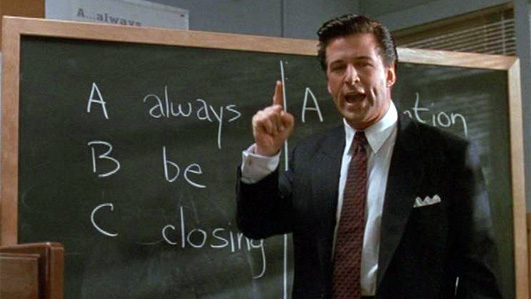Closing, in the context of sales, is a heavily discussed topic, and--unfortunately--also one of the most misunderstood. Frequently, the word “closing” is associated with getting the final signature on a contract. Though that final close is a vital part of the sales process, good sales is composed of many smaller closes that enable you to reach the point of final signature. The better you understand how small “closings” can impact the sales journey, the better you’ll perform.
There are different types of closing which I’ll discuss in a separate, more tactical piece. However, I think it’s best to describe the “why” of closing before the “how.”
Closing is about getting commitment from your buyer. Because time is the enemy of all sales reps, it’s best to find your prospect’s level of commitment early in your conversation. By using the appropriate close, you can quickly ascertain where this person is in their company’s buying process--and then determine the appropriate action.
Additionally, by using closes early and often in your sales process, you build the muscle. You get the customer familiar with taking action as part of your close. This is critical in an expensive B2B sales, where many people are part of the buying process. If you don’t ask for commitment early in your discourse, the likelihood of your prospect giving you a signed contract after a four-month evaluation is dramatically lower. This is because you as the sales rep haven’t asked for commitments along the way. When it comes to the largest commitment of all, why would you then expect someone to start taking action? It’s much better to “start’em early.”
When closing early in the sales process, you want to think about commitments that require little effort. Each company is a bit different, but some practices are common: the customer’s attitude toward working with vendors; the opportunity for you-the-sales-rep to ask questions before talking about your solution; booking a meeting on their calendar. By asking small requests early you are building that muscle and leveraging the power of The Consistency Principle.
As you work through a sales cycle, your “closes” should increase in value. The reasoning here is that as you the rep are spending more time with the potential customer, you are likely providing them with more value, so it’s important that they are reciprocating. You might ask for things like introductions to other people in their organization; their opinion on your solution so far; and their willingness to be your champion.
At the end of the sales cycle, you now need to have the confidence to ask for the signature. This can take a variety of different forms, so it is important to understand who your buyer is so that you use the appropriate close. For example, you probably wouldn’t want to use something like the Ben-Franklin-close on a VP of HR. However, if you’ve done your job up to this point by closing along the way--first starting small and then getting larger--your customer should be in the mode of responding to your closes in an honest and straightforward way.
Closing is not about making someone buy something. As my mentor, Jeff Hoffman says: “closing is about asking for something that is reasonable.” At the beginning of the sales process, this is a small commitment--and at the end, a big one. By taking this approach, the buying process will be pleasurable both for the buyer and for you, the sales rep. You will have done your job by expediting the process needed to bring on a new customer.

